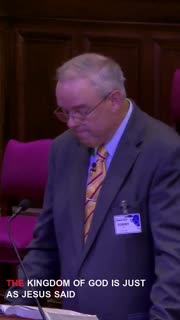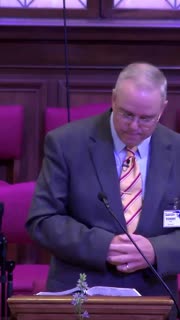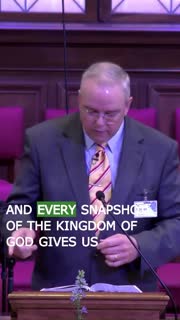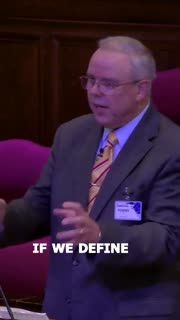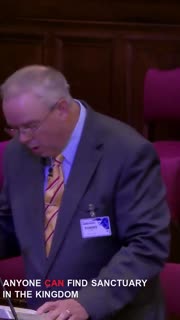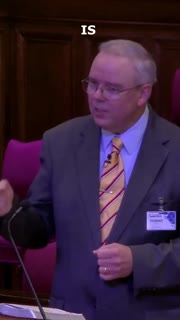From Small Seeds to a Grand Kingdom
Devotional
Sermon Summary
Bible Study Guide
Sermon Clips
### Quotes for outreach
1. "As people of faith, Christians comprehend the big picture of the kingdom of God in much the same way. We study the snapshots of the kingdom of God that Jesus gave us in parables and stories in order to see the kingdom of God with our eyes of faith." [01:42] (21 seconds)
2. "The kingdom of God is just as Jesus said it would be isn't it. It's become the largest plant. In the garden. And the kingdom of God Jesus wants you to know. Is a sanctuary. Big enough. For anyone. Anywhere." [09:50] (20 seconds)
3. "Our king is Christ. The king of all kings. Who rules over the greatest kingdom. That ever existed. Or ever will. He is the ruler of our hearts. He loves us. He longs for us. He gave himself for us. And he speaks of a kingdom. Surprisingly large. That exceeds all expectations of it. And it is a kingdom in which you. Can find shelter. Today. There is room. In that kingdom for you." [17:09] (41 seconds)
4. "You can find shelter there. Doesn't matter what your past may be about. There is room in that kingdom for you. Doesn't matter what you've done. Doesn't matter your sin. Your shame. Doesn't matter any of that. You come into the kingdom. And let God. Begin to work on you. And turn you into what he wants you to be." [18:24] (23 seconds)
### Quotes for members
1. "And every snapshot of the kingdom of God gives us another piece of the puzzle, if you will, another facet of the jewel. That helps us live as true kingdom citizens." [02:00] (14 seconds)
2. "Don't let the small beginning fool you. And then Jesus goes on to. To teach us that the kingdom of God grows from. Seeming insignificant. To the kingdom of God. To significance. To dominance." [07:31] (13 seconds)
3. "If we define the kingdom of God. Most simply. As the rule and the reign of God in the hearts of people. That's really what Jesus is all about. Setting people right with God. So that God is truly reigning in their lives. That's what Jesus means when he tells us. To pray. Thy kingdom come. Thy will be done on earth as it is in heaven." [08:12] (26 seconds)
4. "Anyone can find sanctuary in the kingdom of God. Regardless of nationality. Regardless of race. Regardless of socioeconomic status. Regardless. Regardless of gender. There is neither Jew nor Greek. Slave nor free. No male and female. For we are all one in Christ Jesus. The Bible says. Christ has made the kingdom of God accessible to all. Anyone who trusts in him. Becomes a citizen. Of his expansive kingdom." [11:15] (35 seconds)
5. "The kingdom of God. Is big enough. For a diversity of experiences. A diversity of worship styles. Even a diversity of interpretations. Of the scripture. If you will. World Christianity. Is made up of approximately. 33,820 denominations. Or similar. Distinct organizations. So the kingdom of God. Is big enough to accommodate that. Those. Those. Distinctions. That diversity. The kingdom of God. Is big enough for it. The branches are sturdy enough. To support all of those birds." [11:48] (44 seconds)
Ask a question about this sermon
1. "As people of faith, Christians comprehend the big picture of the kingdom of God in much the same way. We study the snapshots of the kingdom of God that Jesus gave us in parables and stories in order to see the kingdom of God with our eyes of faith." [01:42] (21 seconds)
2. "The kingdom of God is just as Jesus said it would be isn't it. It's become the largest plant. In the garden. And the kingdom of God Jesus wants you to know. Is a sanctuary. Big enough. For anyone. Anywhere." [09:50] (20 seconds)
3. "Our king is Christ. The king of all kings. Who rules over the greatest kingdom. That ever existed. Or ever will. He is the ruler of our hearts. He loves us. He longs for us. He gave himself for us. And he speaks of a kingdom. Surprisingly large. That exceeds all expectations of it. And it is a kingdom in which you. Can find shelter. Today. There is room. In that kingdom for you." [17:09] (41 seconds)
4. "You can find shelter there. Doesn't matter what your past may be about. There is room in that kingdom for you. Doesn't matter what you've done. Doesn't matter your sin. Your shame. Doesn't matter any of that. You come into the kingdom. And let God. Begin to work on you. And turn you into what he wants you to be." [18:24] (23 seconds)
### Quotes for members
1. "And every snapshot of the kingdom of God gives us another piece of the puzzle, if you will, another facet of the jewel. That helps us live as true kingdom citizens." [02:00] (14 seconds)
2. "Don't let the small beginning fool you. And then Jesus goes on to. To teach us that the kingdom of God grows from. Seeming insignificant. To the kingdom of God. To significance. To dominance." [07:31] (13 seconds)
3. "If we define the kingdom of God. Most simply. As the rule and the reign of God in the hearts of people. That's really what Jesus is all about. Setting people right with God. So that God is truly reigning in their lives. That's what Jesus means when he tells us. To pray. Thy kingdom come. Thy will be done on earth as it is in heaven." [08:12] (26 seconds)
4. "Anyone can find sanctuary in the kingdom of God. Regardless of nationality. Regardless of race. Regardless of socioeconomic status. Regardless. Regardless of gender. There is neither Jew nor Greek. Slave nor free. No male and female. For we are all one in Christ Jesus. The Bible says. Christ has made the kingdom of God accessible to all. Anyone who trusts in him. Becomes a citizen. Of his expansive kingdom." [11:15] (35 seconds)
5. "The kingdom of God. Is big enough. For a diversity of experiences. A diversity of worship styles. Even a diversity of interpretations. Of the scripture. If you will. World Christianity. Is made up of approximately. 33,820 denominations. Or similar. Distinct organizations. So the kingdom of God. Is big enough to accommodate that. Those. Those. Distinctions. That diversity. The kingdom of God. Is big enough for it. The branches are sturdy enough. To support all of those birds." [11:48] (44 seconds)

